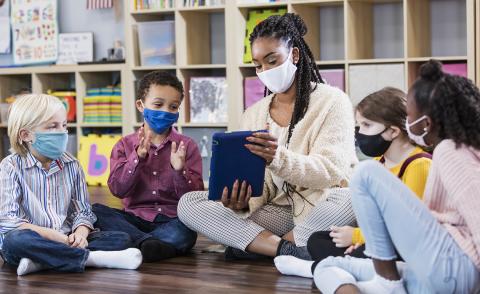Initiative Funds Projects to Safely Return Children to In-Person School

Photo: kali9/Getty Images
NIH is funding five additional projects to identify ways of safely returning students and staff to in-person school in areas with vulnerable and underserved populations. The awards are the second installment of the Safe Return to School Diagnostic Testing Initiative, part of NIH’s Rapid Acceleration of Diagnostics Underserved Populations (RADx-UP) program.
The new awards will fund 5 projects over 2 years in California, Arizona, Hawaii, Nebraska and Florida. The 8 initial awards, totaling $33 million over 2 years, were made in April 2021.
The program addresses the needs of children with unequal access to Covid testing as well as those facing barriers to attending school remotely, including children who lack access to computers and internet connectivity, or who may not have family members available to help with virtual learning.
Without in-person schooling, many children miss out on school-based meals, speech or occupational therapy and after-school programs. Loss of such services disproportionately affects minorities, the socially and economically disadvantaged and children with various medical complexities.
The new projects will focus on implementing Covid-19 testing regimens for students younger than age 12 (who are ineligible for vaccination), exploring the influence of vaccination for eligible staff and students, addressing vaccine hesitancy and seeking information on circulating variants and breakthrough infections. One of the new projects will focus on native Hawaiians and other Pacific islanders, groups not addressed in the previous awards.
Dr. Diana Bianchi, director of NICHD, which is managing the initiative, said, “By learning best practices and methods through research, we can get children back in the classroom safely and equitably.”
